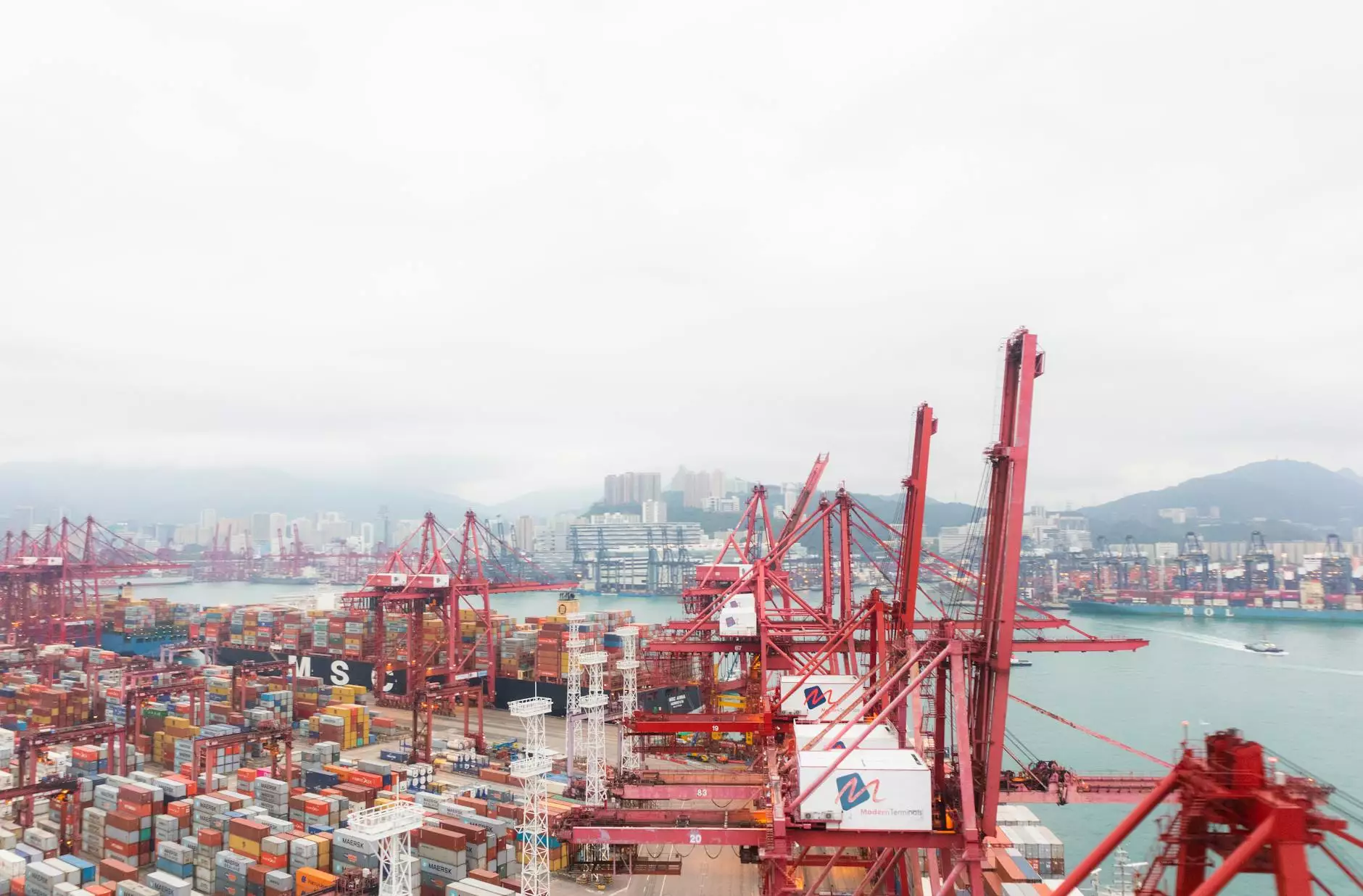The Future of Cargo Reservation Systems in Aviation

Cargo reservation systems play a pivotal role in the aviation industry, streamlining operations and enhancing customer satisfaction. As global trade continues to grow, airlines and logistics providers are increasingly turning to advanced technology solutions to manage their air cargo more effectively. This article delves into the various facets of cargo reservation systems, examining their impact on airlines, airport terminals, and aviation services.
Understanding Cargo Reservation Systems
A cargo reservation system is a software solution designed to manage the booking and transportation of cargo within the air freight ecosystem. These systems enable airlines and freight forwarders to accept, track, and manage cargo shipments, providing a seamless experience for customers. They are essential for:
- Automating booking processes
- Tracking shipments in real-time
- Reducing operational costs
- Enhancing customer service
- Improving visibility and transparency in logistics
The Importance of Automation
In today's fast-paced market, automation is critical for success. Cargo reservation systems automate numerous processes that were once manual, thereby minimizing errors and reducing the time required to handle bookings. Key benefits of automation include:
- Increased Efficiency: Automation accelerates the booking process, allowing airlines to handle a larger volume of cargo with fewer resources.
- Improved Accuracy: Automated systems reduce human error, ensuring that bookings and cargo details are accurate.
- Cost Reduction: By optimizing workflows, airlines save time and reduce operational costs associated with labor and paperwork.
Key Features of Modern Cargo Reservation Systems
Modern cargo reservation systems are equipped with a range of features that enhance their functionality and usability. These include:
1. Advanced Booking Management
Efficiently handle bookings through user-friendly interfaces that allow for real-time updates and modifications. Users can:
- Place reservations quickly
- Modify existing bookings with ease
- Access historical data on shipments
2. Real-Time Tracking and Visibility
Tracking is vital for ensuring that cargo reaches its destination safely and on time. Real-time tracking features enable:
- Monitoring the status of shipments
- Receiving automatic alerts for status changes
- Providing customers with up-to-date tracking information via portals or mobile apps
3. Comprehensive Reporting Tools
Data analytics are essential for making informed business decisions. Cargo reservation systems offer robust reporting tools that provide insights such as:
- Booking trends and patterns
- Revenue management analytics
- Performance metrics for operational improvement
Benefits of Implementing a Cargo Reservation System
The advantages of adopting a cargo reservation system are immense and can significantly transform an airline's operations. The key benefits include:
Enhanced Customer Experience
Providing customers with a seamless and efficient booking process enhances their overall experience. A user-friendly interface, combined with real-time tracking, empowers customers with control and transparency.
Increased Operational Efficiency
With a cargo reservation system, airlines can process bookings more quickly and efficiently while minimizing the potential for errors. This leads to smoother operations and reduced bottlenecks.
Scalability and Flexibility
As businesses grow, their systems must adapt. Modern cargo reservation systems offer scalable solutions that can accommodate increased booking volume and changes in operational requirements.
Integrating Technology with Cargo Reservation Systems
As technology evolves, so too must cargo reservation systems. The integration of cutting-edge technology such as artificial intelligence (AI) and blockchain is shaping the future of the industry:
Artificial Intelligence
AI can enhance cargo reservation systems by improving predictive analytics, enabling better demand forecasting and allowing airlines to optimize their capacity management effectively.
Blockchain Technology
Blockchain can provide secure and transparent transactions, enhancing traceability within the supply chain. This can alleviate concerns regarding cargo theft and fraud while improving trust among stakeholders.
The Role of Airlines and Airport Terminals
Airlines and airport terminals are integral to the functionality of cargo reservation systems. Their collaborative efforts ensure that cargo moves smoothly through the supply chain. Key aspects include:
Collaboration Among Airlines
Airlines must work together to optimize routes, reduce costs, and enhance service levels. Cargo reservation systems facilitate this by providing shared platforms for communication and data exchange.
Terminal Operations
Efficient terminal operations are crucial for the quick turnaround of cargo. Cargo reservation systems enable terminals to better manage:
- Loading and unloading schedules
- Space allocation for cargo
- Customs clearance processes
Aviation Services and Their Impact on Cargo Reservation
Aviation services, including freight forwarding and logistics providers, play a significant role in the effectiveness of cargo reservation systems. Their expertise in managing the end-to-end logistics chain enhances the value proposition of these systems:
Freight Forwarding Services
Freight forwarders leverage cargo reservation systems to optimize routes and ensure that shipments are delivered on time. This is achieved through:
- Coordinating with multiple airlines
- Utilizing advanced tracking technologies
- Managing documentation and compliance efficiently
Customer Relationship Management (CRM)
Incorporating CRM solutions with cargo reservation systems allows businesses to build stronger relationships with customers, providing a personalized experience based on their needs and preferences.
Challenges in the Adoption of Cargo Reservation Systems
Despite the advantages, the implementation of cargo reservation systems can present challenges, including:
1. Initial Investment Costs
The upfront cost of implementing an advanced cargo reservation system can be high, especially for smaller airlines. However, the long-term benefits often justify the initial expenditure.
2. Change Management
Introducing a new system requires training and adaptation. Airlines must invest in training their staff to ensure a smooth transition and maximize the system's effectiveness.
3. Data Security Risks
With the increased reliance on technology comes the risk of cyber threats. Ensuring robust cybersecurity measures are in place is critical when adopting a cargo reservation system.
Future Trends in Cargo Reservation Systems
As we look to the future, several trends are expected to shape the evolution of cargo reservation systems:
1. Growing Demand for Sustainability
There is an increasing emphasis on sustainability within the aviation sector. Cargo reservation systems will need to integrate features that support eco-friendly practices, such as carbon offset tracking.
2. Further Integration with eCommerce
The growth of eCommerce is driving demand for efficient air cargo solutions. Future cargo reservation systems will need to cater to the specific needs of eCommerce businesses, including faster shipping options and simplified returns management.
3. Enhanced User Interfaces
As technology advances, user experiences will become increasingly intuitive and user-friendly, making it easier for personnel to navigate cargo reservation systems and manage bookings efficiently.
Conclusion: Embracing the Future of Cargo Reservation Systems
In conclusion, the cargo reservation system is at the forefront of transforming the aviation industry. By automating processes, providing real-time tracking, and integrating advanced technology, these systems offer substantial benefits to airlines, airport terminals, and aviation services alike. As the industry continues to evolve, embracing this technology will be essential for optimizing operations and enhancing customer satisfaction. For businesses looking to thrive in a competitive market, investing in a cutting-edge cargo reservation system will be a strategic move towards achieving operational excellence.









